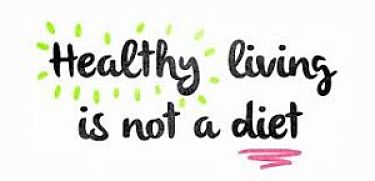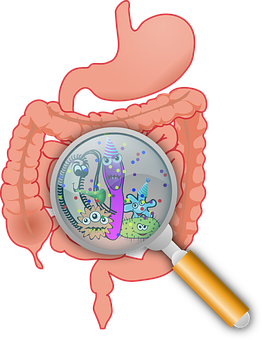How to heal Leaky gut and IBS naturally
Fatigue, bloating, inflamed skin & food sensitivities are accepted as the norm in today’s society. In fact, many people put up with these uncomfortable symptoms for most of their lives without understanding why they are there. The truth is, the presence of these kinds of symptoms is your body’s way of communicating to you that there is a deeper issue. For many, these symptoms may stem from Leaky Gut Syndrome (LGS).
What is leaky gut?
Along the inside of the digestive tract there is a net-like lining of tiny holes that controls which substances pass from the gut through to the bloodstream. When this lining is damaged, large molecules such as undigested food, toxins and microbes are able to pass through the lining, causing an immune response that results in chronic inflammation.
“All disease begins in the gut”
– Hippocrates.
Causes
There are a number of factors that can contribute to the destruction of the lining in the digestive tract including – a high sugar diet, chronic stress, excessive alcohol consumption, food allergies, gastrointestinal infections, bacterial imbalance, yeast overgrowth, antibiotics and non-steroidal anti-inflammatory drugs1.
Symptoms
Skin conditions like eczema
Bloating
Fatigue
Food sensitivity
IBS
Weight gain
Autoimmune
Mood issues
Treatment
Nutritional Guidelines for Healing
-Eliminate grains & wheat – Going gluten free and reducing or eliminating grain consumption, at least for a 21-day period, could reap huge benefits if you are suffering from gut issues. This is because grain consumption has been linked to aggravating the gut wall, which leads to leaky gut and inflammation.
-Make friends with fermented food -Begin to add fermented foods to each meal. This could include sauerkraut, tempeh, kefir, fermented salsa, yogurt or kimchi. These foods are rich in good probiotics (good bacteria) which help to slowly ‘crowd out’ the bad bacteria and restore balance in the gut. This strengthens the immune system, improves digestion & reduces the likelihood of bacterial infection.
-Add prebiotic foods – When you begin to increase your consumption of probiotics, it is important to also ensure there is enough food to keep them alive within your gut. Their preferred food source is known as ‘prebiotics’. This is abundant in foods such as sweet potatoes & yams, Jerusalem artichokes, onions, leeks, asparagus, barley, oats & apples2. Try to include one or more of these foods in your diet daily.
-Increase your Omega-3 intake – Include at least one of the following foods in your diet daily: chia seeds, flax seeds, hemp seeds, walnuts, wild-caught fish such as salmon, trout or tuna. These foods are all great sources of omega-3 fatty acids, which help to reduce inflammation & the presence of some symptoms associated with autoimmune conditions, such as LGS3.
Bone broth – Consume 2 cups of homemade bone broth daily. Broth is rich in vitamins and minerals and is a direct source of collagen, chondroitin and glucosamine, which can help to ‘heal & seal’ the lining of the digestive tract4.
Sip herbal tea – Enjoy at least 4 cups of peppermint and/or lemon balm tea daily. These teas help to soothe inflamed areas of the digestive tract and relieve constipation5.
-Functional health tests – We suggest doing a microbiome stool test and a food sensitivity test. The microbiome test will help to uncover the state of your gut microbiome and whether there are any bacterial imbalances. The food sensitivity test will reveal your immune response to over 90 common foods and provide an individualized diet plan.
Herbal, Superfood and Supplement Therapy
-Probiotics – Take 100 billion units of probiotics each day. This helps to boost the population of good bacteria in the gut and, as a result, gently crowd out the bad bacteria. Supplementing in this dosage will help to reduce symptoms such as excessive flatulence and abdominal pain6.
-L-glutamine – Take 4,000 mg of L-glutamine twice daily. L-glutamine is an important building block required for the gut lining. Supplementation helps to rebuild and repair the lining, providing optimal integrity7. It has also been found to reduce the risk of infection8.
-Aloe Vera – Drink ½ cup aloe vera juice daily. This helps to soothe inflamed areas along the gut lining9. It also has antimicrobial and anti-inflammatory effects in the body. Other plants that have similar properties include licorice, marshmallow root and slippery elm.
-Curcumin – Take 140 mg daily. Turmeric’s active extract, curcumin, has an anti-inflammatory and antimicrobial action that helps to ease symptoms of inflammation10. To boost the absorption of the curcumin, consume turmeric with black pepper & a form of quality fat like coconut oil.
-Peppermint essential oil capsules – Take 1- 2 enteric-coated capsules daily or as abdominal discomfort arises. The active ingredient in peppermint essential oil, menthol, helps to reduce abdominal pain and bloating by relaxing smooth muscles within the gut11.
Mind/Body
-Stress reduction – Practice yoga or meditation daily. This allows your gut sufficient time to heal by reducing the stress of a busy day.12
References
NCBI, J Allergy Clin Immunol. 2009 Jul; 124(1): 3–22.
Monash University, Gastroenterology. Sept 2017.
Journal of the American College of Nutrition. Vol 21, 2002, Issue 6. Aug; 2002.
NCBI, Amino Acids. 2009 May;37(1):105-10.
Science Direct, Phytomedicine. 2015 Nov; 22 (12): 1063-1070.
NCBI, Therap Adv Gastroenterol. 2010 Sep; 3(5): 307–319.
Critical Care Medicine: 2005, May; 33 (5): 1125-1135.
Critical Care Medicine: 2002, Sep; 30 (9): 2022-2029.
Herbal Medicine in The Treatment of Ulcerative Colitis. Saudi J Gastroenterol. 2017 Oct; 18: 3-10.
The Journal of Alternative and Complementary Medicine. 2004; 10 (6): 1015–1018.
Journal of Gastroenterology. 1997 Nov, 32:765.
American Journal of Physiology, Gastrointestinal and Liver Physiology. 2001, Jan; 280 (1): G7-G13.
Get Health News you can use!
Sign up for our Newsletter NOW!


